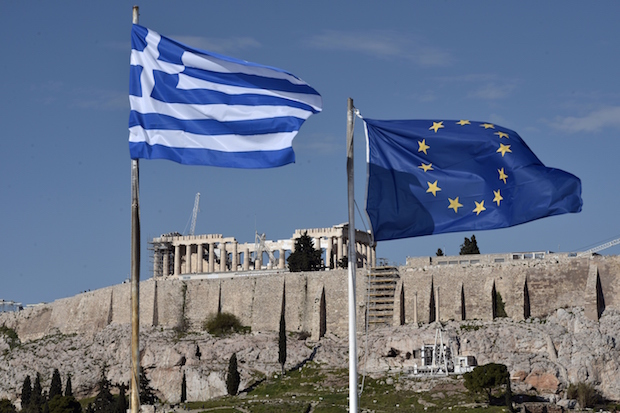Greek voters are currently going to the polls in an election that will have profound consequences for the Eurozone. If the anti-austerity Syriza party wins, as the polls suggest it will—and its lead has actually been increasing in the past few days, the Eurozone crisis will enter a new and more acute phase.
Syriza will demand a softening of the terms of the Greek bailout. But the Merkel government, the European Central Bank and the European Commission are adamant that they’ll be no leeway given. With Merkel already deeply unhappy about the ECB’s quantitative easing programme, she isn’t going to sign off on any concessions to Athens.
Another reason why the powers that be in Europe are so keen to ensure that a Syriza-led Greek government gets nothing is that they fear that if it succeeds in loosening the fiscal straitjacket imposed on Greece then it will encourage voters in other struggling Eurozone countries to vote for anti-austerity parties. Tellingly, the leader of Podemos—the radical leftist Spanish party that was formed less than 12 months ago but is frequently topping the polls ahead of the Spanish elections later this year—has been a regular presence at Syriza rallies in the final days of the campaign.
What makes this situation so dangerous is that Syriza having based its entire campaign on getting a better deal for Greece, will have to get something. But the Germans believe that, unlike in 2011 or 2012, the Eurozone could now cope with Greece leaving or being ejected. This means that Berlin is prepared to make an example of Greece, to force Syriza to accept that there is no alternative.
All this will, as I argued in the magazine recently, have a profound impact on British politics as well as the Eurozone. It looks like another British general election will take place against the backdrop of a crisis in the Eurozone. This will push the economy up the political agenda. It will also make the Tories’ warnings about the dangers of the country borrowing ever greater sums seem far more credible.
But whatever short-term upset it causes, a Syriza victory would be beneficial in the medium to long term. The Eurozone needs to either jettison the weaker, periphery countries or become a full transfer union. If a Syriza win speeds the resolution of this question, it will be ultimately be a good thing for Europe as well as Greece which has spent the last four years nailed to a cross of Euros.







Comments